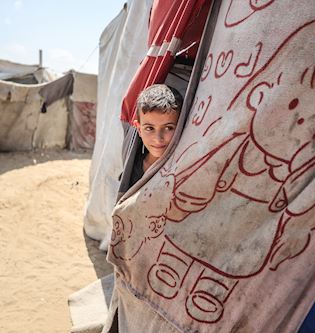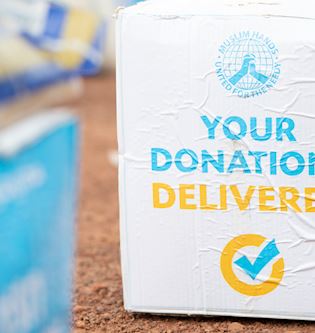How to navigate Post-Ramadan lows?
As we reach a week after saying goodbye to Ramadan, you probably have begun to feel what experts often call the yo-yo effect. You probably know the term yo-yo dieting effect when someone goes on a regime to lose weight yet ends up gaining weight after some time. Thus making it a struggle to maintain a healthy weight. Now, you must be wondering what a weight-fluctuating term has to do with how you must feel after saying goodbye to Ramadan. As a matter of speaking, our bodies and worship went through dramatic changes during Ramadan, much like a person on a diet and exercise plan. As a result of the rhythm created by fasting, all aspects of our lives are affected: health, food, family, and spirit. And now, a week outside of Ramadan, many Muslims are beginning to lose the self-restraint they had built during Ramadan.

Good Bye Ramadan: Understanding the Yo-Yo Dieting Effect Post-Fasting
It's when you begin a new diet regimen, and it's easy in the beginning because you are excited about the initial change and are focused because of it. The excitement lets you focus on exercising, drinking water, and building healthy muscle by eating good, wholesome meals. As you begin to shed pounds over a short period of time, that goal of losing weight seems within reach. However, many people begin to struggle with self-control that has been enabling the health benefits they are going through, thus falling victim to getting comfortable with old habits and gaining weight gain. This becomes a torturous cycle like a yo-yo.
What is the yo-yo effect of the month of Ramadan?
In Ramadan, as our focus and lifestyle shift, we undergo many changes simultaneously. We go through a deep cleanse, not just regarding the timing of our daily rituals but also shifting focus on the afterlife. Beyond abstaining from food and water during daylight hours, Muslims are also obligated to refrain from engaging in bad deeds or intentions, as this is considered destructive to their fast and part of the spiritual cleansing.
Many Muslims follow late sleeping hours in Ramadan, but as we return to regular sleeping hours, things feel awkward. More importantly, when getting good sleep, we perhaps lose our concentration on keeping with our prayers. For many, the morning prayer might suffer instantly after Ramadan. Or we might struggle with putting away time for the Quran because now we are overwhelmed with other responsibilities.
These are some of the signs that the steady rhythm of change we built during Ramadan has become shaken. This is similar to someone who has lost ten pounds already but is struggling to keep up with the changes they have already established.

Support System for Muslims
But fret not; you are not alone. The lack of a support system is the biggest reason for the yo-yo effect. But your struggle is a revelation that you have already proved for a month that you can be the person you are pushing yourself to be. That is something we don’t realize, that we have already done the hard part. We have set up the circumstances and taken steps to improve ourselves and become the best versions of ourselves.
Furthermore, without even realizing it, we did it in solidarity with millions of others.
The Islamic calendar, based on a 12-month lunar year with Ramadan as the 9th lunar month, allows us to continue fasting after Eid al Fitr because six sunnah fasts in Shawaal can help you fast for a little longer to keep your rhythm. The conclusion of Ramadan and its end dates are traditionally determined by the sighting of the new moon, marking the start of Shawwal. Or fast in the 10 days of Dhul-Hijaah, thus fasting in the holiest months of the Islamic calendar. If you have pregnant or nursing women or ill family members who missed their fasts in Ramadan, you can fast with them after Eid al Fitr.
Use the month of Ramadan as the stepping stone to continue prayers, fasting, going to the mosque, and seeking guidance by reading the Quran as often as possible because you are not alone in this journey.
So even though post-Ramadan, it’s almost as if everyone scatters into individual lives again. As we focus on adjusting our lives to regular sleeping habits, eating times, and other things, remember the devotion you felt worshiping during Ramadan and its last ten days.
Focus Mode and Self-control
The other reason for the yo-yo effect is that all that change is easier to follow because of the focused mode you enter and tell yourself, ‘I have to do this,’ which takes away the hesitation and distractions from pre-and-post Ramadan life. So it's not that you can't do what you want, like pray on time or read the Quran daily. It's just that you have told yourself it was just for Ramadan at some level mentally. Or it just seems far away now because the rush of Ramadan has worn off.
But that focus mode was all yours and still can be. Let us push to hold ourselves accountable as we try to get back to the habits we had in Ramadan.
So, go beyond what you eat and drink. Strive to include Prophet Muhammad's (PBUH) habits into our lives to please Allah(swt). Our bodies are amanah from Allah(swt), but in Islam, it's also about our family, friends, and children. Our relationships are as much in focus as solo worship.
Remember, the Prophet Muhammad (PBUH) has said: "The deeds that are most beloved to Allah(sw) are the ones that are consistent even though they may be few." Sahih
So, as you struggle, remember maybe you don't have to do all the things you did in Ramadan, but maybe one or two consistently. It can be habits like praying at least once a day in the mosque, giving to charity, or reading the Quran on your commute to work because consistency is the key to continuous change.















